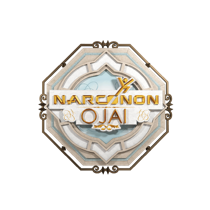The Vital Necessity of Strong Life Skills
Part III of the series: “Is Relapse Really Inevitable?”
In the earlier parts of this series, we have explained why it’s so hard for addicted individuals to break free from their dependence on drugs and how the Narconon program helps them see the brightness and hope of life again. We’ve also explained how a lack of life skills started them on the road to addiction and the necessity to rebuild these skills if they are to stay sober after rehab.
The Narconon program finishes off with life skills training that protects a person’s sobriety long after they complete the program and go home. Just because a person is now sober and thinking straight, they may not have all the tools they need to weather the challenges life may throw at them. A setback or serious upset and they may start thinking of the way they used to deal with problems – cover them up with alcohol, pills, marijuana or other drugs. Their self-respect and integrity need to be strong enough to prevent this kind of self-harm. Here’s how these skills are built at Narconon.
Bringing Back Self-Respect and Integrity
A burden of guilt and shame makes it difficult to commence a new, enjoyable and sober life. If this guilt is not relieved and replaced with self-respect, it’s easy for a person to turn back to drugs. First, a person must learn one of the biggest reasons he was willing to damage his own survival – a connection to harmful individuals.

Families often say that their loved ones “fell in with the wrong crowd” and there’s truth to this statement. When you can’t detect the sometimes subtle differences between true allies and those who wish one harm, it’s easy to be swayed. What kind of person is dangerous? Someone who distributes drugs, encourages their use, promotes a lifestyle where you do whatever you want including engaging in sexual promiscuity or degrading acts. Who influences young people to ignore their parents, schooling, jobs, health or future.
On the Overcoming Ups & Downs in Life Course, a person learns to identify and deal with these people. There are specific characteristics that can give away a person’s true motives and when these are learned well, they reduce a person’s vulnerability.
Next, the Personal Values Course teaches an individual exactly how he lost his self-respect and integrity. Even better, it teaches how to get them back. When the grief and guilt drain away, replaced by a return of self-worth, it’s a big step forward toward lasting sobriety.
Learning to Solve Problems
Most addicted people are focused on the drugs or alcohol they need for the day. They have skewed their lives around so they can make sure of getting what they feel they need. An alcoholic plans events around being able to drink with the right people – those who won’t criticize him. A person using heroin or crack or methamphetamine desperately works out how to get the cash needed for the day’s drugs. Resolving problems in relationships or life in general is far from their minds.
But staying stably sober requires this skill. Therefore, the last life skill taught at Narconon is the ability to repair one’s life and relationships. Marriages, families, work, school and community – all these relationships must be maintained in a healthy, sober life. On the Changing Conditions in Life course, a person learns how to tell when a part of his life needs work and exactly how to go about fixing it.
With these life skills under one’s belt, life can be enjoyable and productive once more without drugs and without alcohol.

Learn more about the Narconon drug and alcohol rehabilitation program today and discover how it can be the solution to addiction you’ve been looking for. Keep reading to learn more about the Life Skills training at Narconon Ojai.


